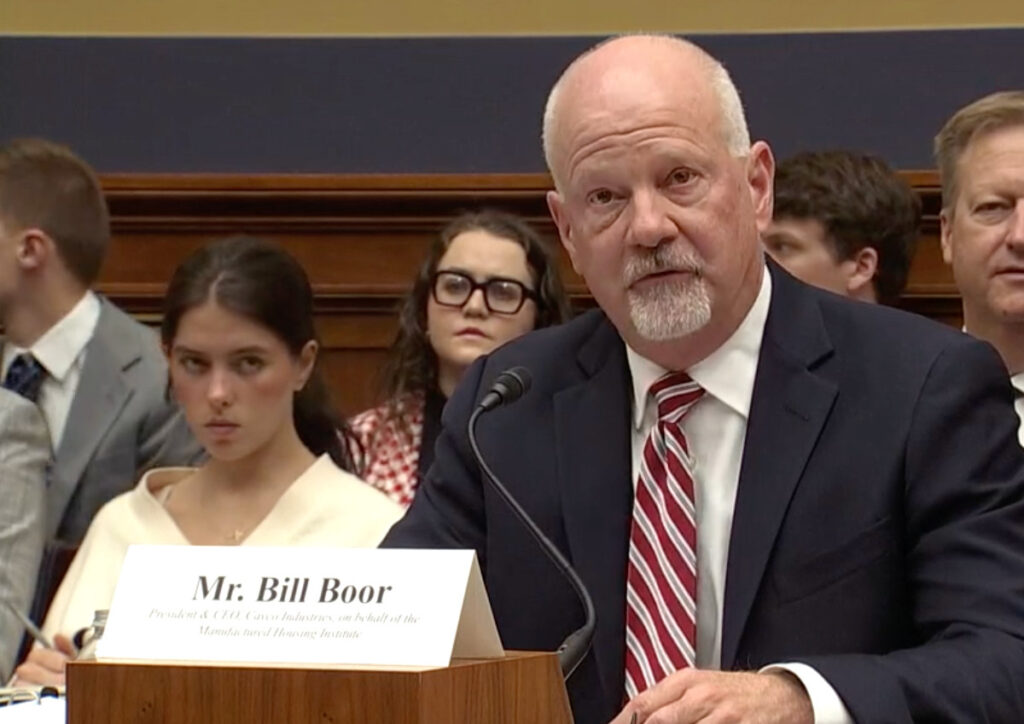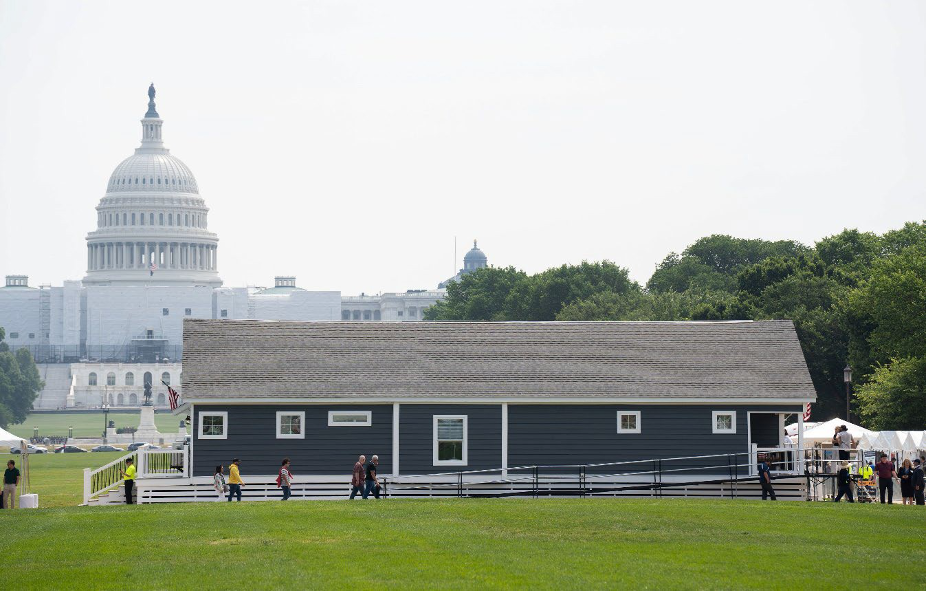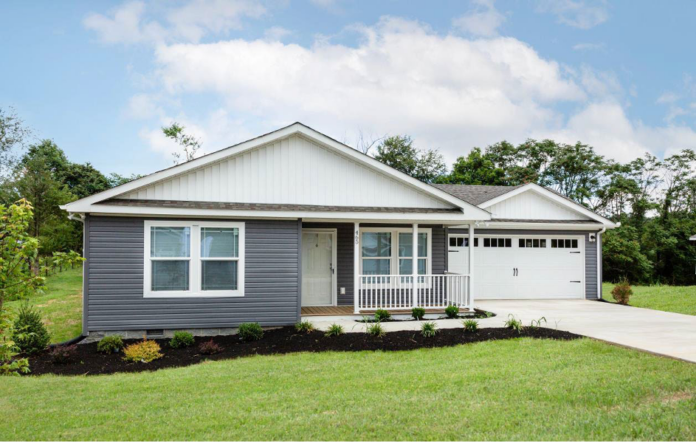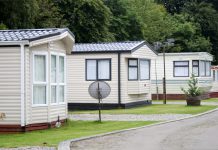Bill Boor, the CEO of Cavco Industries, which is the nation’s third largest builder of manufactured homes, testified before the House Subcommittee on Housing and Insurance on July 14 and pointedly told members how new DOE mandates would damage the industry’s ability to build, and would keep a significant swath of potential homeowners at bay.

“Our industry has a history of significant and meaningful improvement in safety and quality. Our modern, factory-built homes compare favorably to site-built construction in durability and energy efficiency,” Boor said.
Many of the industry’s homes qualify for Energy Star certification and other government programs for energy efficiency, he said.
“In short, the subcommittee should be disavowed of any misperception that ours is a lagging industry that needs to be pulled forward with regard to ESG performance,” Boor said. “We build to a federal construction code that has been developed by and administered by HUD for 48 years and we share the objective of continually improving building standards in a balanced manner.”
“The vast majority of manufactured homes being built today exceed HUD’s standards for energy efficiency,” he said.
The subcommittee’s meeting was called to address “How Mandates Like ESG Distort Markets and Drive Up Costs for Insurance and Housing”.
Boor, who also is the vice chairman of the Manufactured Housing Institute, urged the subcommittee to consider pending legislation that would designate HUD as the industry’s lone regulatory authority, preventing DOE and other governmental bodies from making rules that unnecessarily run counter to the goal of providing affordable housing.
“DOE standards must be subject to the HUD Code process, with HUD having final authority to issue such energy standards,” Boor said. “And, HUD should follow the guidance of its experts on the subject, the MHCC – a body that has already found serious fault with the proposed DOE standards.”

Cavco, founded in 1965 in Phoenix, operate 31 manufactured housing factories across the country and has 64 retail locations, a manufactured housing lending business, and an insurance company.
“We focus on delivering the high-quality, safe, reliable, and affordable housing our customers desire in a way that benefits all of our stakeholders,” Boor told the subcommittee.
Boor said corporate responsibility is not separable from operating and growing a business, but rather is good for business and an integral component of what drives success.
“The DOE rule is a perfect example of how external ESG mandates distort markets and have unintended consequences that outweigh any potential benefit to consumers, businesses, and the environment,” he said. “The DOE rule will increase cost of manufactured homes to the point of requiring thousands of low-income consumers to remain in older, less energy-efficient housing, and miss what for many may be their only opportunity to attain homeownership.”










